Indiana Supreme Court to hear Bloomington annexation case
Bloomington will argue one of its annexation cases in front of the Indiana Supreme Court on Oct 30. The case affects five of the annexation areas. It’s not about the merit of the city’s desire to annex those areas but about the constitutionality of a 2019 law.
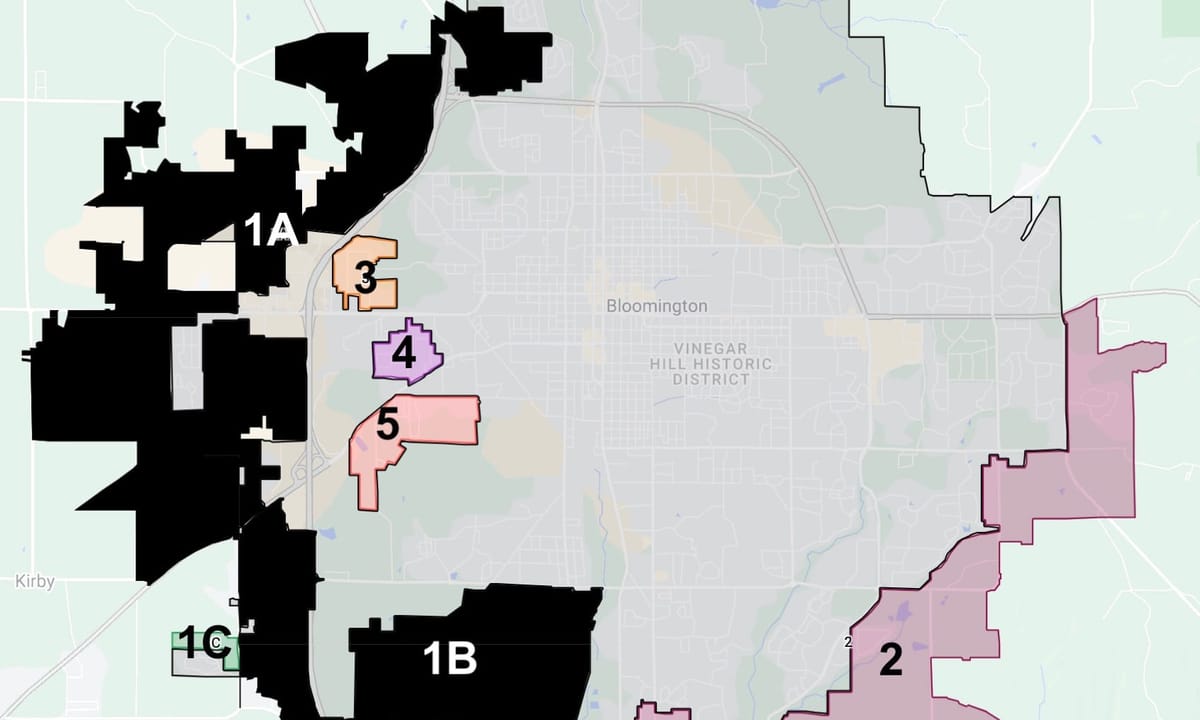
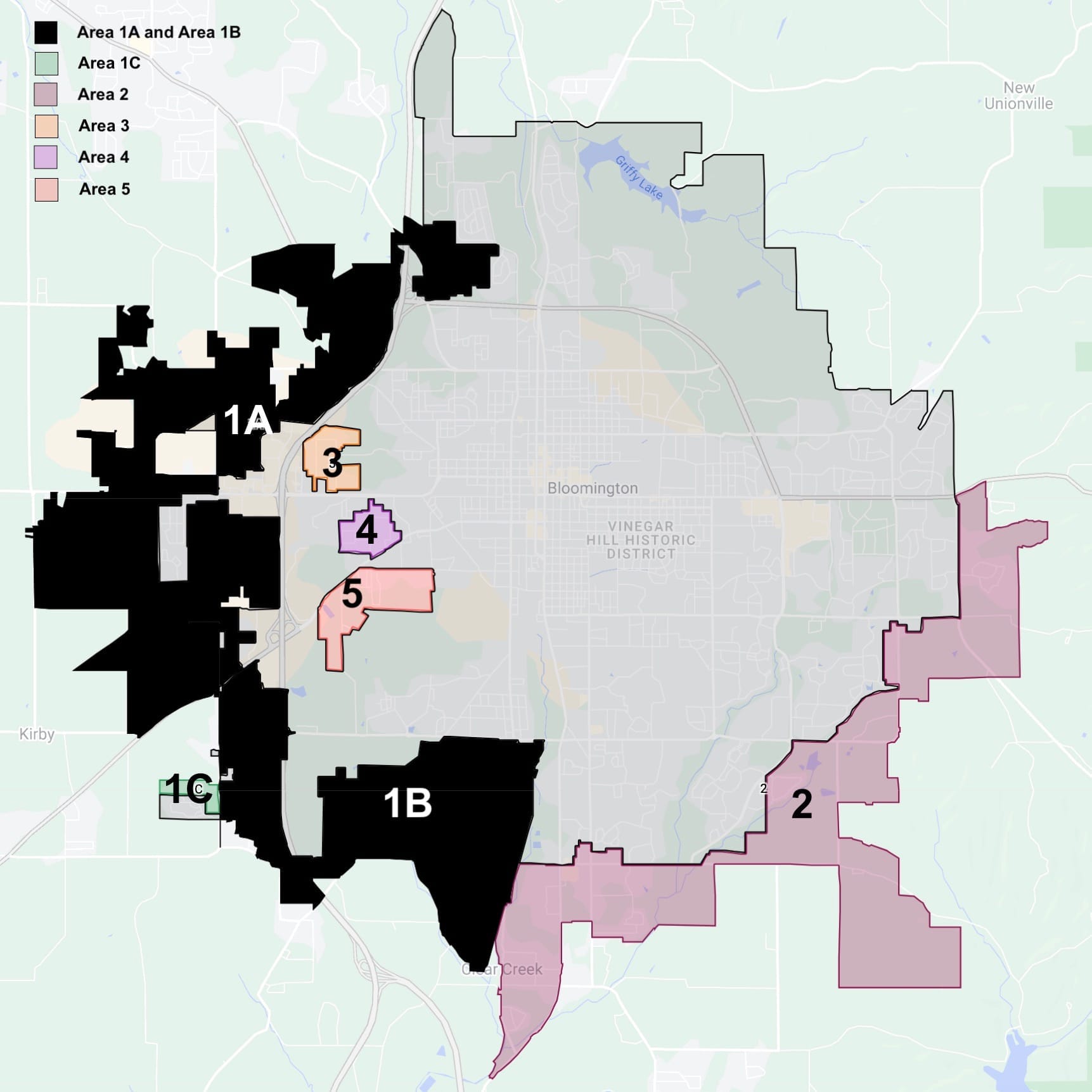
The city of Bloomington will argue one of its annexation cases in front of the Indiana Supreme Court in about three months, on Oct 30.
That’s the outcome of the city’s motion in April asking the state’s highest court to review the unanimous ruling made by a three-member court of appeals panel in February. The court of appeals ruling, like the trial court’s ruling made in June 2024, went against the city of Bloomington.
On Monday, the court agreed to hear the case and set a date for oral arguments, giving each side 20 minutes. Statistically, it’s rare for the court to accept a case. This year so far, in 94% of cases, the court has let the ruling of the court of appeals stand.
The case that’s now to be heard by the Indiana Supreme Court affects five of the annexation areas: Area 1C, Area 2, Area 3, Area 4, and Area 5. But it’s not about the merit of the city’s desire to annex those areas. Instead, the question of law is whether a 2019 law enacted by the state legislature is constitutional.
The 2019 law is key to Bloomington’s annexation effort, because it rendered invalid many remonstrance waivers, which the city was relying on to prevent property owners from achieving a high enough percentage of remonstrance signatures to stop annexation. Signatures from property owners with older waivers, where were invalidated by the 2019 law, were counted by the county auditor. That meant the total tally of signatures was high enough (more than 65%) to stop annexation in all five areas.
Bloomington filed suit based on the idea that the 2019 law was unconstitutional, arguing that it interfered with legal contracts (the remonstrance waivers) and therefore violated the contract clauses of the federal and state constitutions.
In its opinion, the court of appeals found that Bloomington, as a municipality, lacks enforceable rights under the contract clauses of the federal or state constitutions, to challenge the 2019 Act as an impairment of its contracts with landowners. The court also found that even if Bloomington could challenge the 2019 Act, the 2019 Act does not substantially impair Bloomington’s contracts under contract clauses of the federal or state constitutions—because it doesn’t disturb the principal elements of the contracts and municipal annexation is traditionally regulated by the state.
In the city’s other annexation case, oral arguments in front of a court of appeals panel are now set for Aug. 19. That case is on the merits of annexation in the two other areas—Area 1 A and Area 1B, which are not affected by the constitutional question. In those areas, the question is about the merit of Bloomington’s annexation case for those geographic areas.
A weeklong trial led to a ruling from the trial judge in August 2024 that Bloomington’s annexation case for Area 1A and Area 1B did not meet the statutory criteria. The judge said Bloomington had failed to demonstrate adequate population density, degree of urbanization, or the city’s need for the land.

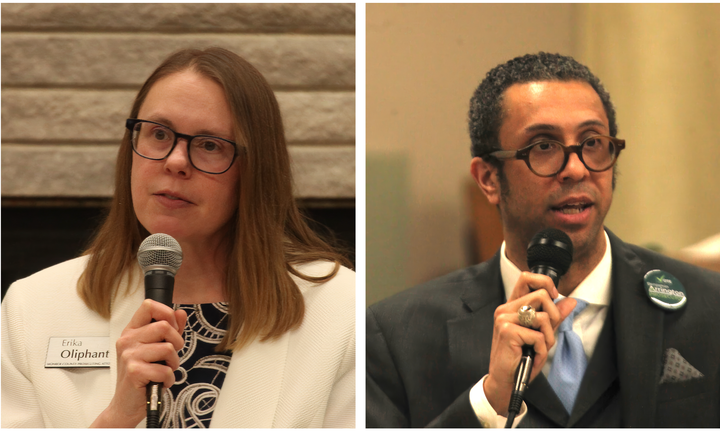
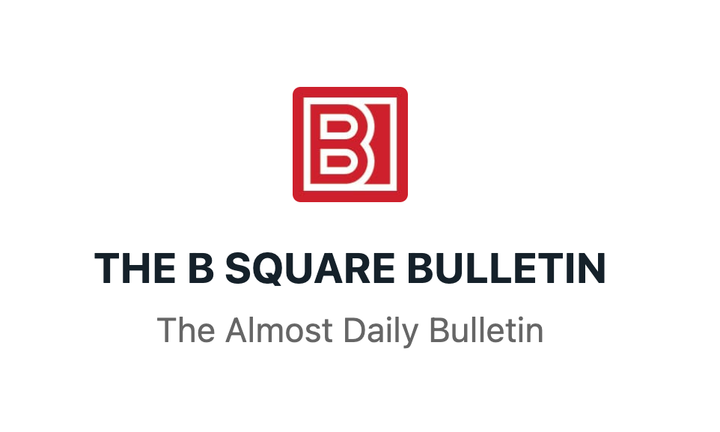
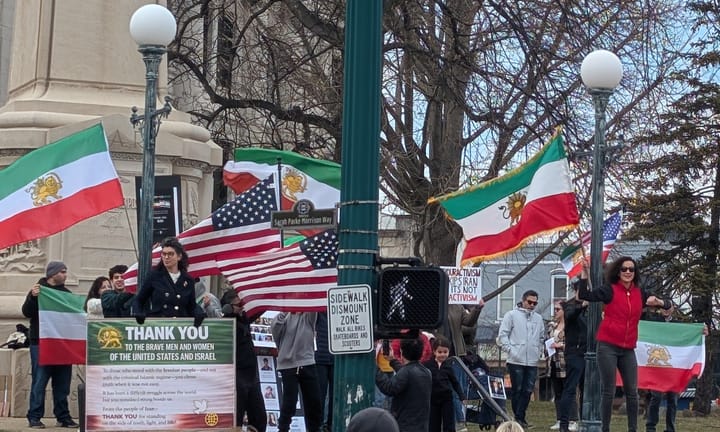
Comments ()